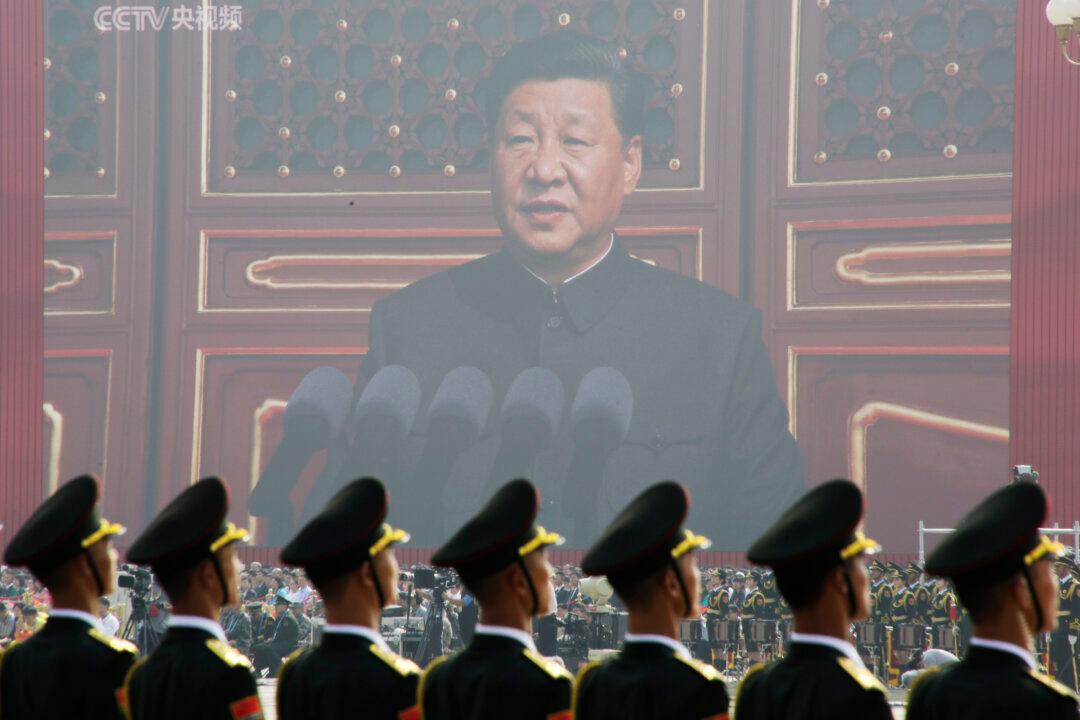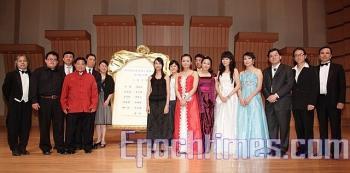TAIPEI, Taiwan—Late last month more than 100 journalism scholars signed a petition urging the government to restore journalistic integrity by ending its practice of placing in the media advertorials that market government policies. This is seen as sending a strong message to the government that free speech in Taiwan is “in crisis.”
The protest against the government’s use of advertorials arose after veteran reporter Huang Je-bing resigned from the China Times on Dec. 12, after 16 years of service, and wrote in his blog about the growing practice of the government’s product using the media to promote its policies, which has tainted media culture and distorted the definition of “good reporting.”
According to a Central News Agency (CNA) report, advertorials are a form of paid advertisement masquerading as objective news stories. An example would be a pharmaceutical company paying a reporter to write a story on the company’s new painkiller in the form of an objective article.
In his blog titled “Leaving China Times on a Jet Plane,” Huang says the deep-rooted practice of advertorials has eroded the profession of journalism, the report said.
“Reporters have turned into advertising salesmen, while public relations firms and advertising companies have become news writers. The government and large corporations have their hands directly in the news desk, dictating the content of the stories,” he said.
“Taiwanese newspapers are ahead of the world trend for paid promotional news. Since my ideas about this job seem outdated, I am resigning and going home,” The Taipei Times wrote, quoting from Huang’s blog.
Many university professors from journalism and communications departments rallied to support Huang. The Times reported that a total of 128 professors from 41 departments had signed the petition.
Linked to his discontent with the growing trend of the government’s buying news coverage, Huang’s resignation has sparked a heated debate among scholars and politicians on the role of government in regulating the media and the way that government agencies publicize their policies.
National Chengchi University Journalism Department head Lin Yuan-hui told CNA that the negative effect of advertorials has greatly distorted what “good reporting” means in this country, adding that “right now, the definition of good news is no longer based on its content but on its earning power.”
Professor Chang Chin-hwa of the Graduate Institute of Journalism told The Epoch Times: “Public media’s role is to be the mouthpiece of the people while monitoring the government, which is vitally critical to the functioning of our democratic society. The practice of placing advertorials to promote government interests threatens freedom of speech and media independence.”
Lin Lih-yun, a professor of journalism at National Taiwan University said in the same Taipei Times report that journalism and communications professors had joined efforts to send a strong message to the government and the business sector over its rampant practice of using advertorials.
Professor Lin said Huang’s statement showed that most people serving in the news and media sector in Taiwan realized they are in a time of crisis.
“The news media have to report the truth and represent the public’s interests. As the fourth estate, the media are able to monitor government performance and promote democratic development. However, reporters’ hands are now tied. The government spends public funds to get policies published in the news media, practicing propaganda and brainwashing its citizens,” she said.
Premier Wu Den-yih told The Taipei Times reporters that the practice of using advertorials started a decade ago when the Democratic Progressive Party (DPP) was in power, but the Chinese Nationalist Party (KMT) did not address it after returning to power in May 2008.
“A government is bound to promote itself, and the same goes for a candidate, a political party, a company or a state, but there should be a clear distinction between news stories, advertisements and promotion,” Wu said. “Product placements should be avoided” because they “deceive” people in a form of paid advertisement masquerading as a news story.
The Taipei Times also reported that on Dec. 30 the Executive Yuan proposed a non-binding measure to address the issue.
The proposal suggested that government agencies should not use advertorials or embedded marketing in print and electronic media, and that government agencies should refrain from placing embedded marketing ads aimed at promoting agency heads or their policies in the form of news stories, news features, news programs or news tickers.
“The Executive Yuan has asked the relevant agencies to deliberate the suggestion,” Government Information Office (GIO) Minister Johnny Chiang said in the report.
[email protected]
Read the original Chinese article.
The protest against the government’s use of advertorials arose after veteran reporter Huang Je-bing resigned from the China Times on Dec. 12, after 16 years of service, and wrote in his blog about the growing practice of the government’s product using the media to promote its policies, which has tainted media culture and distorted the definition of “good reporting.”
According to a Central News Agency (CNA) report, advertorials are a form of paid advertisement masquerading as objective news stories. An example would be a pharmaceutical company paying a reporter to write a story on the company’s new painkiller in the form of an objective article.
In his blog titled “Leaving China Times on a Jet Plane,” Huang says the deep-rooted practice of advertorials has eroded the profession of journalism, the report said.
“Reporters have turned into advertising salesmen, while public relations firms and advertising companies have become news writers. The government and large corporations have their hands directly in the news desk, dictating the content of the stories,” he said.
“Taiwanese newspapers are ahead of the world trend for paid promotional news. Since my ideas about this job seem outdated, I am resigning and going home,” The Taipei Times wrote, quoting from Huang’s blog.
Many university professors from journalism and communications departments rallied to support Huang. The Times reported that a total of 128 professors from 41 departments had signed the petition.
Linked to his discontent with the growing trend of the government’s buying news coverage, Huang’s resignation has sparked a heated debate among scholars and politicians on the role of government in regulating the media and the way that government agencies publicize their policies.
National Chengchi University Journalism Department head Lin Yuan-hui told CNA that the negative effect of advertorials has greatly distorted what “good reporting” means in this country, adding that “right now, the definition of good news is no longer based on its content but on its earning power.”
Professor Chang Chin-hwa of the Graduate Institute of Journalism told The Epoch Times: “Public media’s role is to be the mouthpiece of the people while monitoring the government, which is vitally critical to the functioning of our democratic society. The practice of placing advertorials to promote government interests threatens freedom of speech and media independence.”
Lin Lih-yun, a professor of journalism at National Taiwan University said in the same Taipei Times report that journalism and communications professors had joined efforts to send a strong message to the government and the business sector over its rampant practice of using advertorials.
Professor Lin said Huang’s statement showed that most people serving in the news and media sector in Taiwan realized they are in a time of crisis.
“The news media have to report the truth and represent the public’s interests. As the fourth estate, the media are able to monitor government performance and promote democratic development. However, reporters’ hands are now tied. The government spends public funds to get policies published in the news media, practicing propaganda and brainwashing its citizens,” she said.
Premier Wu Den-yih told The Taipei Times reporters that the practice of using advertorials started a decade ago when the Democratic Progressive Party (DPP) was in power, but the Chinese Nationalist Party (KMT) did not address it after returning to power in May 2008.
“A government is bound to promote itself, and the same goes for a candidate, a political party, a company or a state, but there should be a clear distinction between news stories, advertisements and promotion,” Wu said. “Product placements should be avoided” because they “deceive” people in a form of paid advertisement masquerading as a news story.
The Taipei Times also reported that on Dec. 30 the Executive Yuan proposed a non-binding measure to address the issue.
The proposal suggested that government agencies should not use advertorials or embedded marketing in print and electronic media, and that government agencies should refrain from placing embedded marketing ads aimed at promoting agency heads or their policies in the form of news stories, news features, news programs or news tickers.
“The Executive Yuan has asked the relevant agencies to deliberate the suggestion,” Government Information Office (GIO) Minister Johnny Chiang said in the report.
[email protected]
Read the original Chinese article.



